Roundworms in dogs are very common. These are parasites that live in the large intestine of puppies and dogs.
These are also called nematodes and they receive nutrition from whatever your dog or puppy is eating.
Roundworms are the most common worms found in dogs. These can also be transmitted to human beings. It gives you an extra reason to ensure your dog or puppy has no worms.
Regular veterinary visits are imperative for your dog or puppy to ensure that they are free from parasites including roundworms.
How do dogs and puppies get roundworms?
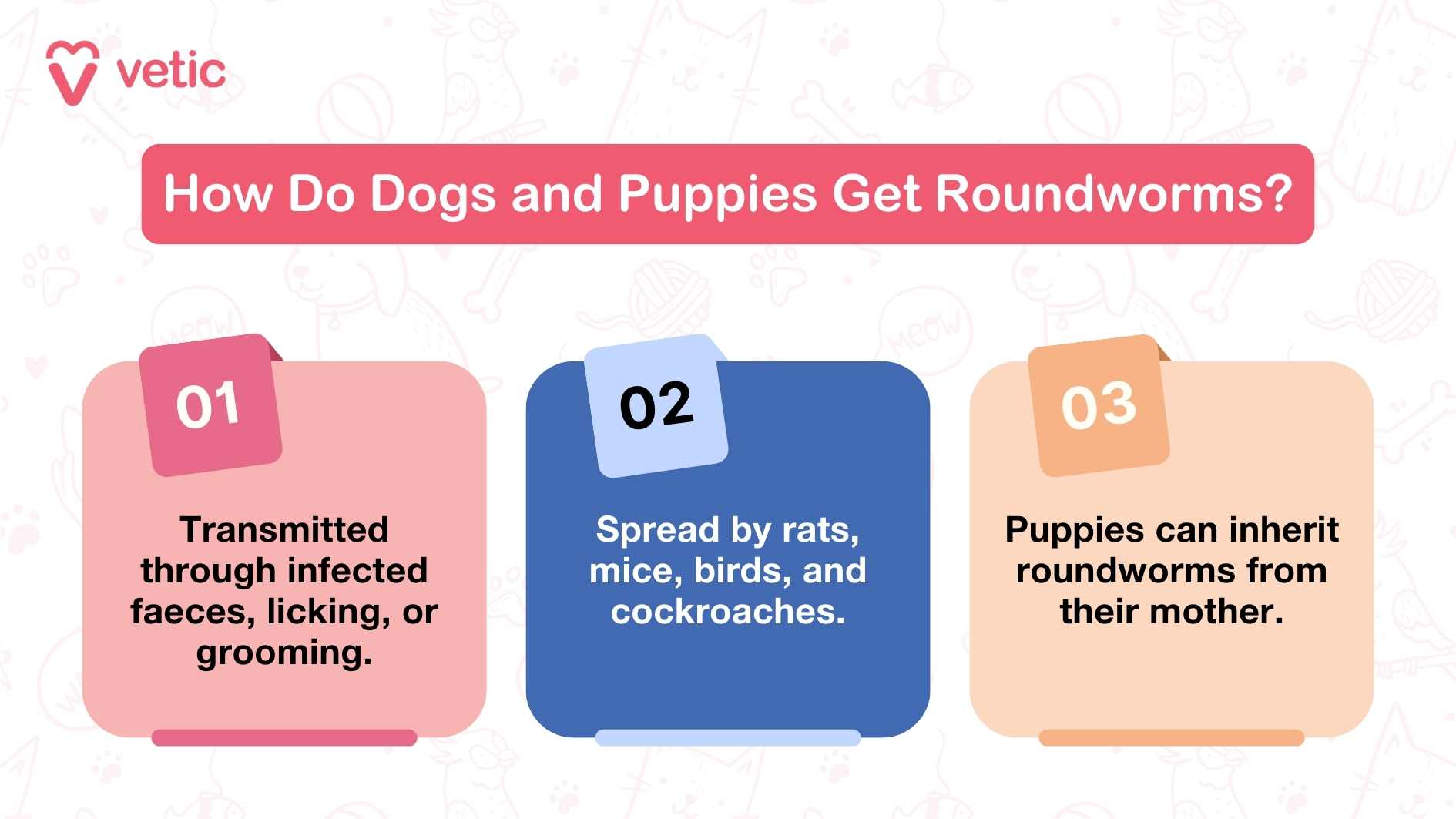
Roundworm eggs and larvae are very resistant to environmental changes. So, when a dog with roundworm poops, the eggs come out with their poop.
Other dogs pick up these eggs by licking, sniffing and licking their noses, and eating the infected faeces. If your dog or pup walks or plays outside, they can ingest the eggs while grooming themselves too.
Other animals and insects can also spread roundworms. These include rats, mice, birds and cockroaches.
Roundworms go through several stages of development inside the large intestine of the infected dog. They can also migrate to the other tissues and organs of the infected dog.
Puppies can get roundworms from their mother while in the womb or breastfeeding. Roundworm larvae can cross the placenta and enter the mammary glands.
It is necessary to deworm the pregnant mother dog when she’s 6 weeks pregnant to prevent roundworm in puppies.
Did you just bring a new puppy home? You should visit the best veterinarian near you ASAP to find out about your pup’s deworming and vaccination schedules.
What are the signs of roundworms in dogs?
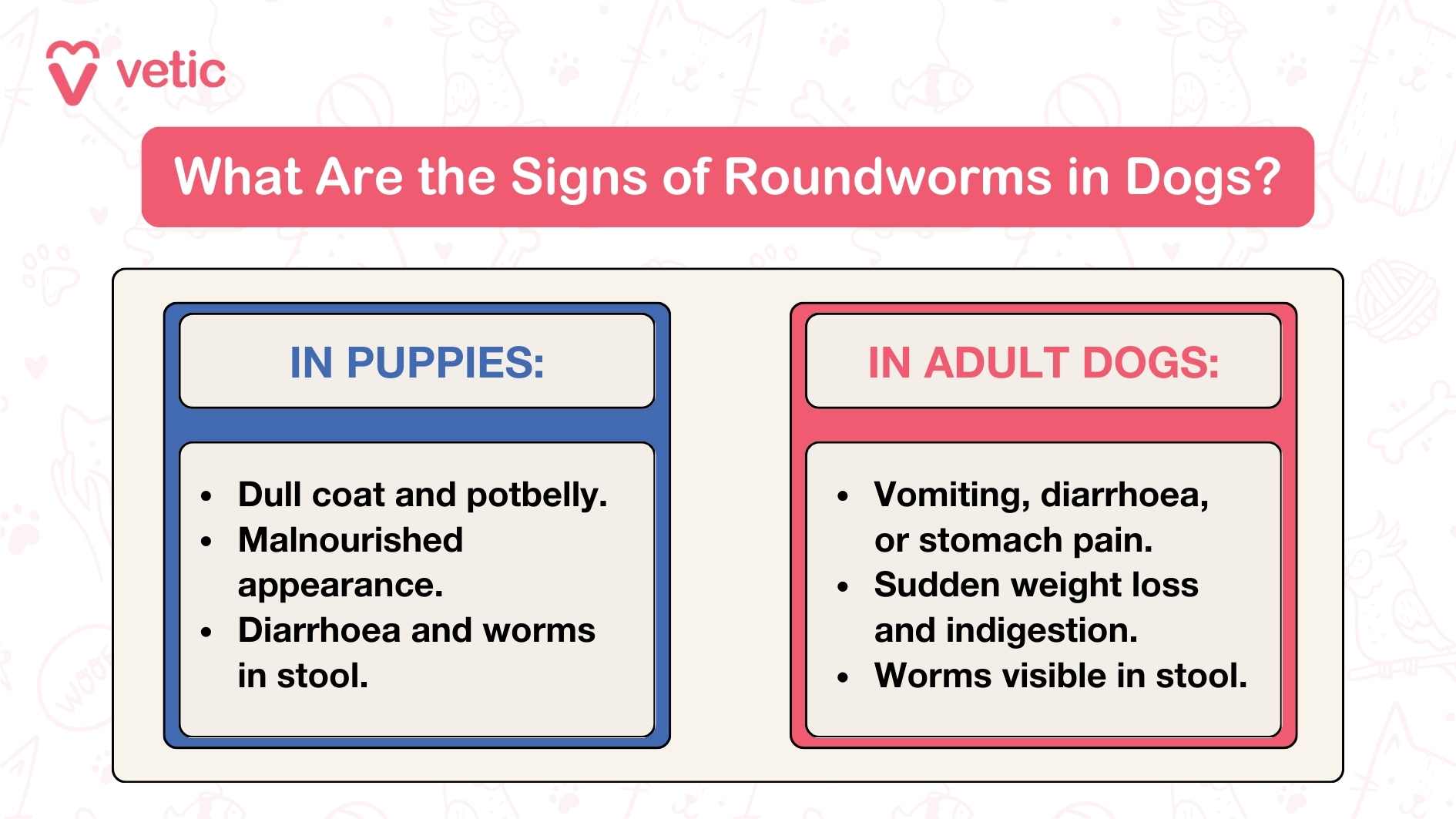
Puppies typically show the following signs of roundworms –
- A dull coat
- Potbelly
- Malnutrition (skinny)
- Diarrhoea
- Worms in stool
Signs of roundworms in dogs include –
- A dull coat
- Indigestion (diarrhoea and vomiting)
- Worms in stool
- Sudden weight loss
- Stomach pain
- Pot-bellied appearance
Although not all dogs show all the signs and symptoms of roundworms, they will show at least a few primary signs, such as weight loss and indigestion when they have a high worm load.
It is never safe to assume your puppy or dog doesn’t have parasites because they don’t go outside or stay clean. You can track roundworm eggs and larvae in your home with your dirty shoes as well.
Can roundworms in dogs or pups be a life threat?
Almost every puppy and dog has a small population of roundworms unless they have been freshly dewormed. Since they derive their nutrition from your dog’s food, they can cause deficiency disease.
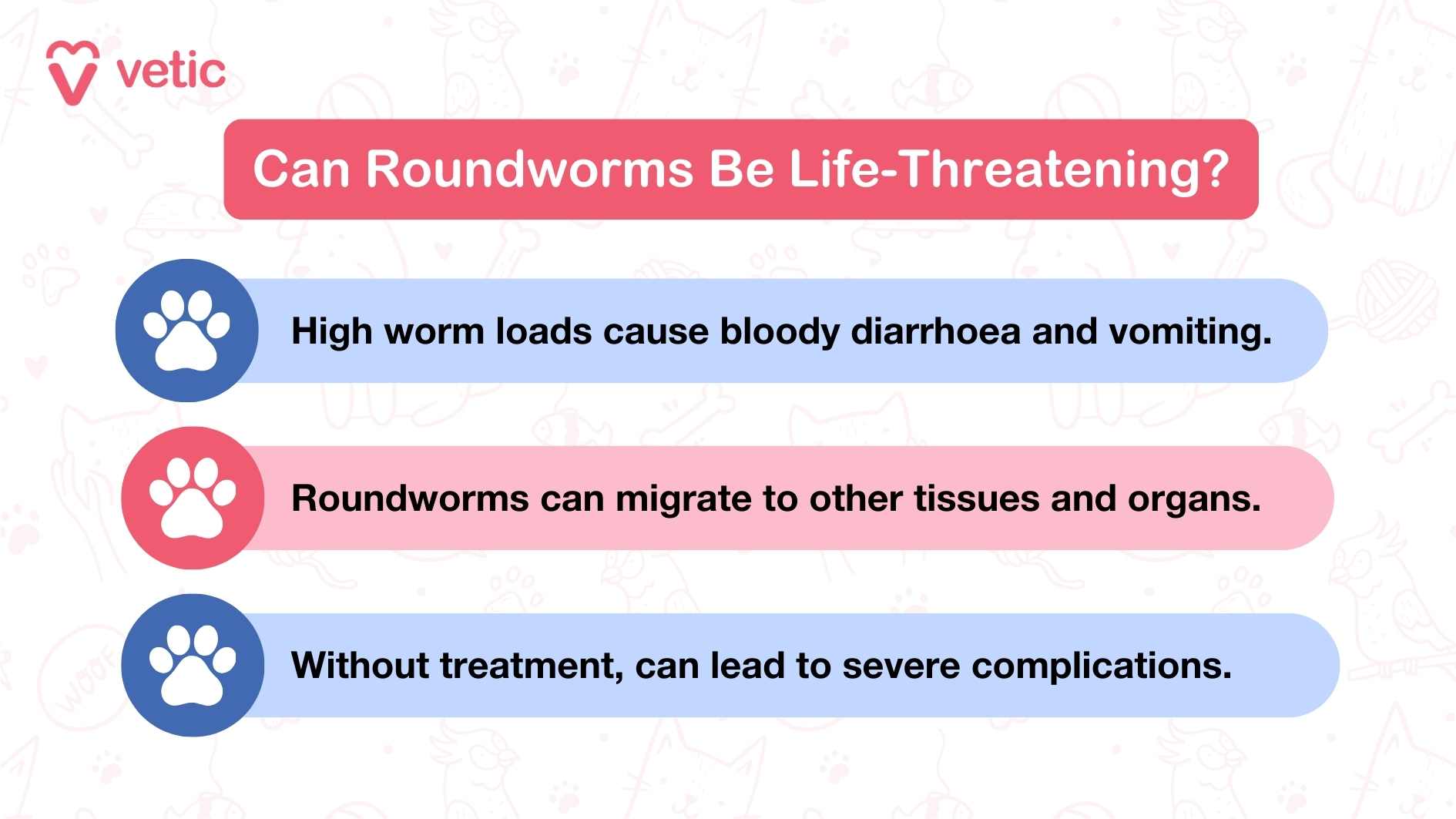
Roundworms migrate from the large intestine to other tissues and organs, which can pose a health risk for your puppy or dog.
Most importantly, a high load of worms can lead to haemorrhagic diarrhoea – that is when your pup or dog passes blood with their stool. Your pet can show signs of haemorrhagic gastroenteritis. Without correct diagnosis and treatment, it can become life-threatening.
How to diagnose roundworms in dogs?
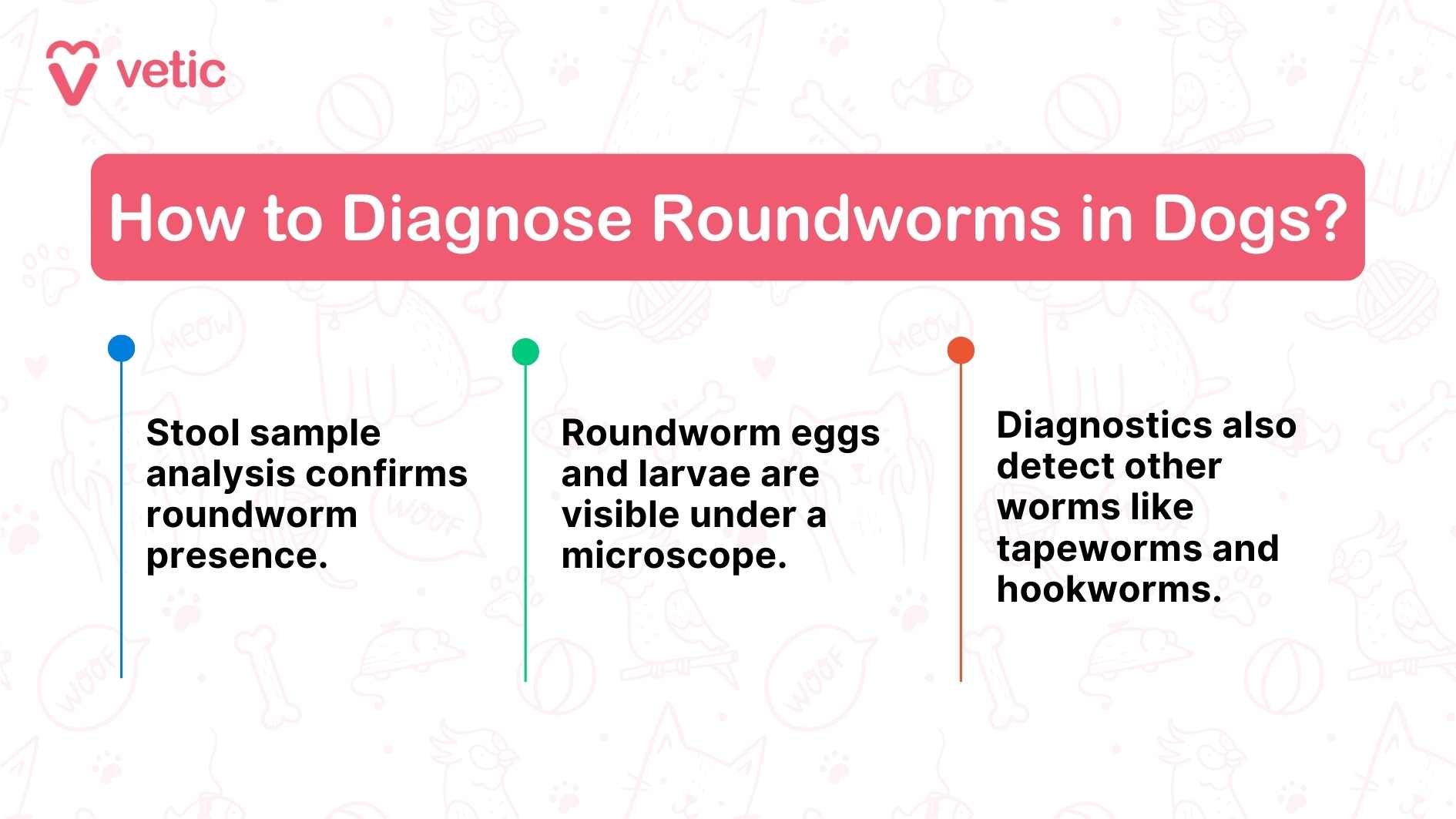
The best way of diagnosing roundworms in dogs and puppies is to get their stool sample examined.
Go to a nearby veterinary clinic that has in-house diagnostics. You can collect your dog’s stool sample (uncontaminated). They can help you with the collection process.
You can get the results of your dog’s stool sample analysis within 24 hours since the roundworms, roundworm eggs and larvae are clearly visible under the microscope.
Your puppy or dog may have a few other types of worms, including whipworms, tapeworms and hookworms. Speak to your veterinarian about the presence of these worms and the ways to remove them safely.
Are roundworms in dogs and puppies curable?
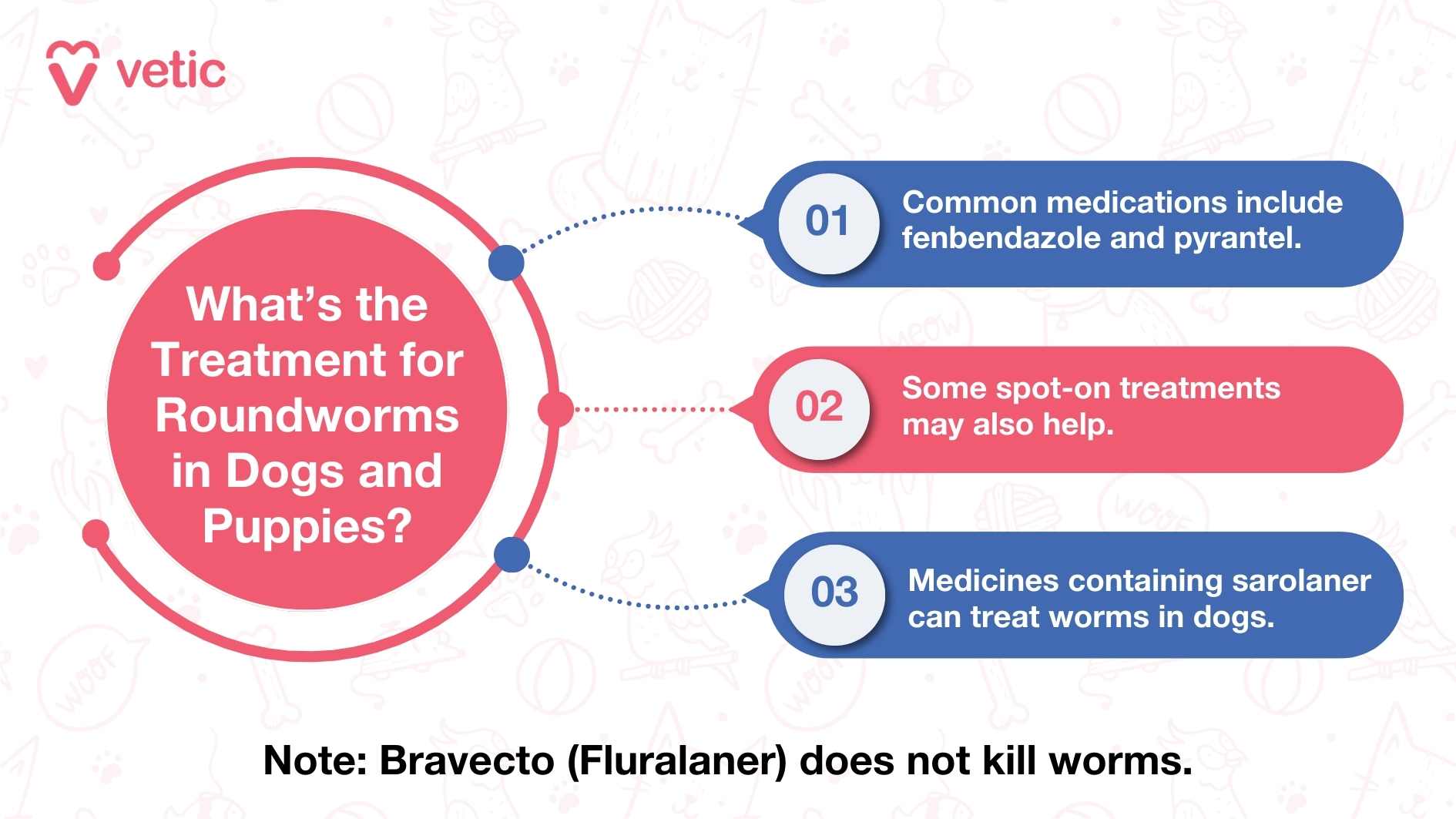
Roundworms are parasites that can be effectively diagnosed and treated. They may cause multiple health complications, but a roundworm infection isn’t exactly a disease.
That being said, your puppy or dog needs immediate medical attention if they are showing signs of roundworm infestation or their stool test comes back positive for roundworms.
Using the right drug at the correct dose will kill and eliminate the adult roundworms in your puppy or dog’s intestines. However, the larvae and eggs can still remain and mature.
Always repeat the prescribed dewormer at the correct dose and interval to prevent roundworm infestation in your dog or pup.
Not treating roundworms at the opportune moment can cause toxaemia or toxicosis. Although puppies are more susceptible to toxaemia caused by worms, adult dogs are at risk too.
What’s the treatment for roundworms in dogs and puppies?
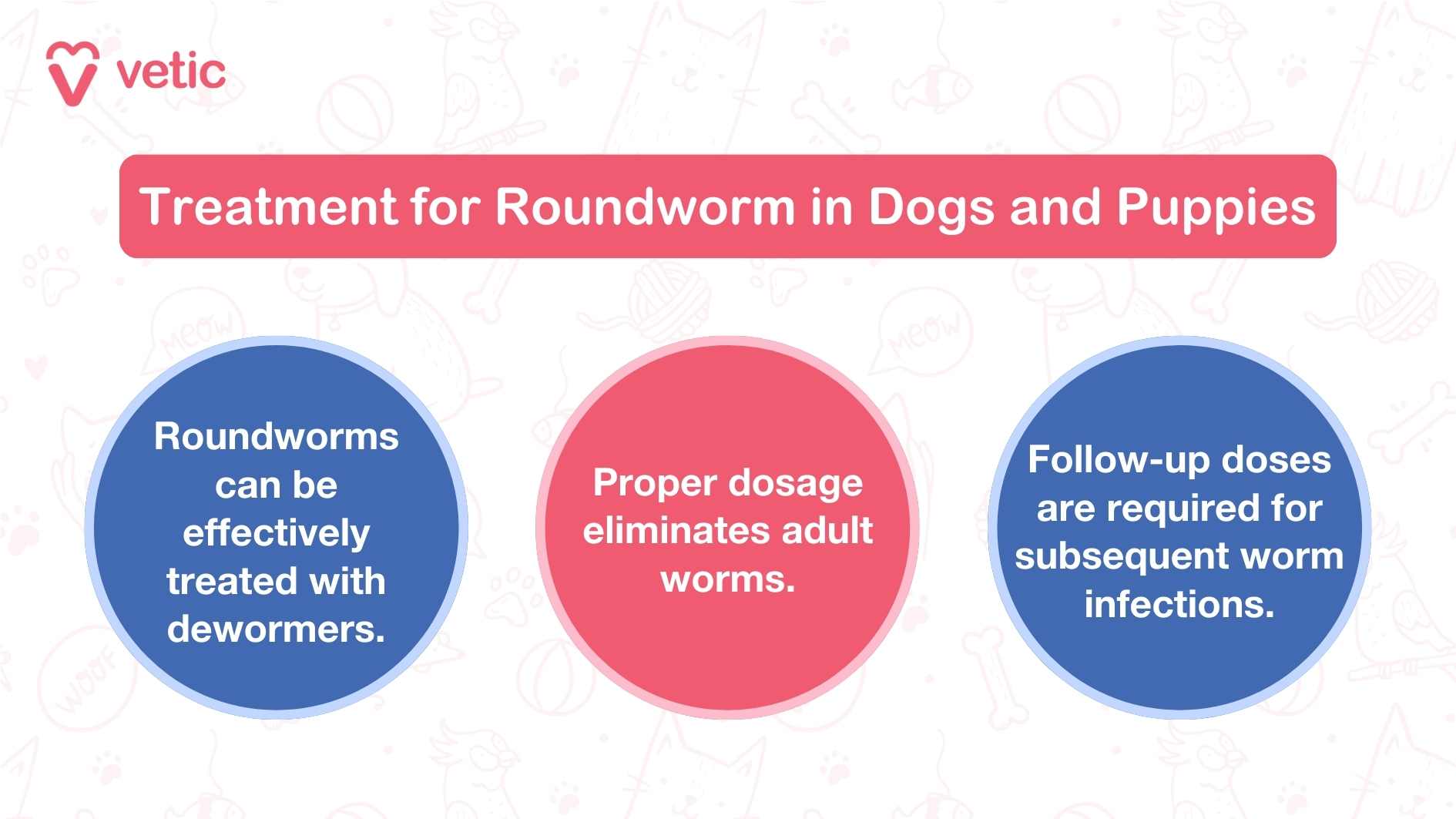
Roundworms are parasites that are susceptible to multiple medicines. Some of the common drugs used to treat roundworms include fenbendazole and pyrantel.
Never use these drugs without consulting an experienced veterinarian.
Your veterinarian will recommend the best possible solution for deworming your dog or puppy depending on the type of worms and larvae in their poop, age and health condition.
Every medicine or combination of medicines has a particular dose. Do not try to deworm your dog or puppy all by yourself. Overdosing of deworming solution can cause toxicosis.
If it’s your puppy’s first worming your veterinarian can administer the first dose. The vet will conduct a thorough physical examination of your puppy before they give the first dose.
Several veterinarians and vet clinics near you give the first 3 doses of dewormer to the puppies since they gain weight rapidly and are highly susceptible to infections.
How can I prevent roundworms in dogs and puppies?
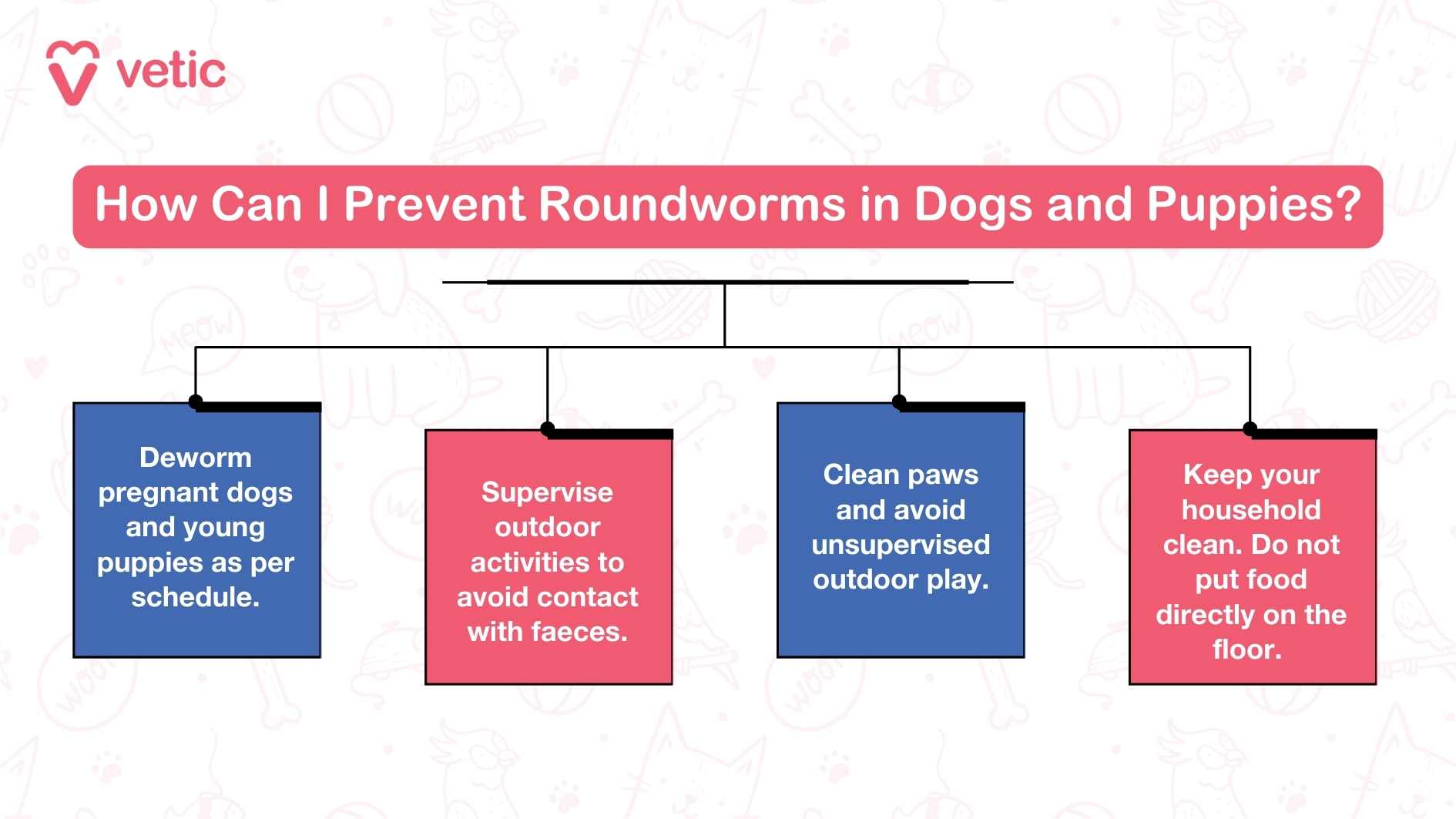
Prevention of roundworms in dogs and puppies can involve multiple steps. Roundworm prevention may include –
- Deworm the mother when she is 6 weeks pregnant with the correct dewormer. (Speaking to a veterinarian is mandatory).
- Deworming your puppy every couple of weeks as prescribed by your veterinarian.
- Don’t let your puppy or dog lick or sniff objects while out for a walk.
- Clean your pup’s or dog’s paws once they are back from the outside.
- Keep your pup or dog away from other unknown dogs and small animals.
- Don’t leave your dog unsupervised outside, even on your lawn or yard.
If you are still unsure about preventing roundworm in your dog, speak to a veterinarian. Your dog needs regular checkups. These examinations often reveal if your dog needs an additional dose of worm medication.
Is your dog or pup showing signs of roundworms? Take them to the nearest veterinary clinic today! Vetic has experienced vets and the latest diagnostics to confirm roundworms, and the medicines necessary to treat the same.

